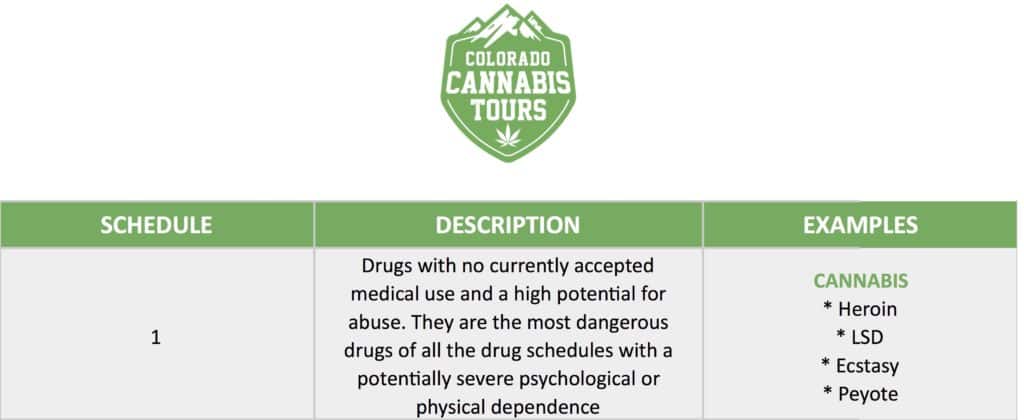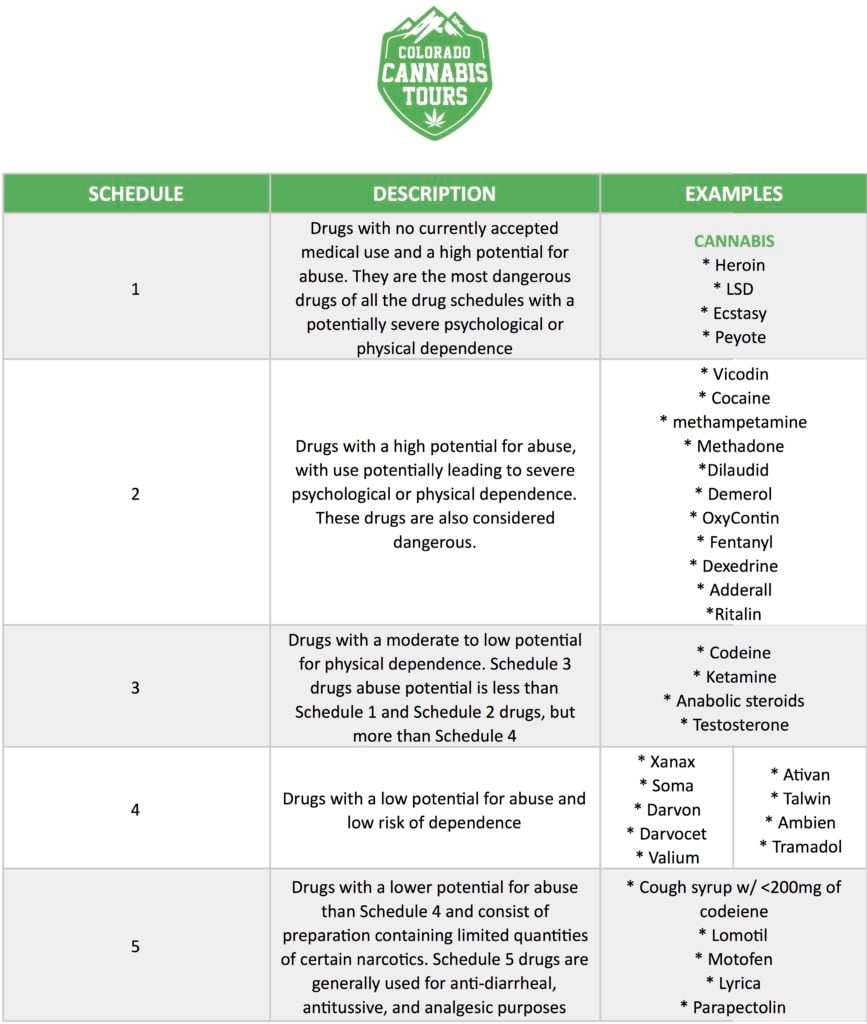Is the DEA about reschedule (or deschedule) marijuana?

In April this year, the Drug Enforcement Administration released a memo regarding the potential rescheduling of cannabis. Substances listed as Schedule I are considered to have no medical value and cannabis has been denoted as such since 1970. But what does that mean? And while a rescheduling of the plant would be an absolute admission by the DEA that they’ve been wrong all these years and that marijuana does have medical properties, it could also come along with a host of not so great repercussions.
Drug schedules are a product of the Drug Enforcement Administration. There are 5 schedules in total and they are used to split up and classify substances based their acceptable medicinal uses and their potential to be abused. Schedule I is the most regulated and Schedule V is at the other end of the spectrum. The more a drug is abused by the population, the more dangerous it is considered to be and the more likely it is to become a Schedule I drug. The more severe the physical and/or psychological dependence on a substance is, the more likely it is to become a Schedule I drug.
A few examples of Schedule I drugs are: heroin, lysergic acid diethylamide (LSD), marijuana (cannabis), 3,4-methylenedioxymethamphetamine (ecstasy), methaqualone, and peyote. Cannabis seems pretty tame in comparison, right?

Historically, Schedule I drugs have been nearly impossible to research because they are considered to have absolutely no medical properties whatsoever. So why research them? What good are they to science? But that is not the only reason cannabis research is effectively blocked. In order to do any federally recognized research on cannabis, you currently need to obtain any marijuana used in your research from one lonely garden run by the government. Which sounds like quite an unnecessary burden for scientists. There was an application once, only once, by a researcher named Lyle Craker, who wanted to grow cannabis in bulk to supply research material for interested scientists. It was denied. Surprise. And the appeal was denied. Surprise, surprise.
If rescheduled, there would be a much greater opportunity for studies utilizing cannabis to be conducted. With more studies come more information and with more information comes a better chance of understanding the full potential of marijuana as a medicine.
And let’s get real, information is power, and we are robbing ourselves of a whole lot of power by not trying to get the total picture when it comes to the makeup, classification, uses and medical properties of cannabis. Congressman and cannabis activist Jared Polis agrees, “I think it’s just common sense to allow good science to be done.” A Democrat from Colorado, Polis has advocated for years for the DEA to lighten up when it comes to pot.
The rescheduling could also eliminate a massive headache for cannabis businesses. As it stands, certain tax restrictions affecting businesses that deal in Schedule I or Schedule II drugs. The 280E provision prevents businesses in the cannabis industry from deducting almost all business expenses that non cannabis companies are allowed to claim. This puts an unnecessary burden on legal businesses. It’s an unofficial tax that all cannabis businesses have to account for, and one that takes money out of the pockets of hardworking individuals – from growers and budtenders to owners and CEOs.
The DEA reconsiders classifications for scheduled substances routinely enough that marijuana not having been seriously reevaluated more than a handful of times in the last 45 years is a little shocking and a lot disappointing for many in the cannabis community and beyond. It also makes it really hard to take the schedules seriously when they have ignored such a glaring miscalculation in their regulations. Marijuana, without a doubt, has medicinal values and has been proving as much for as long as it’s been labeled otherwise. It’s time for a move off of Schedule I, definitely.
But it won’t be all positive news if cannabis goes through a rescheduling process. Many activists are campaigning for a complete and total descheduling of the cannabis plant. They say that the risks of negatively affecting the currently regulated medical marijuana are too great to move forward with a rescheduling.
For one thing, if cannabis is rescheduled, there is every possibility that it will signal the entrance of seriously big business in the medical marijuana industry. There are definitely large companies that exist in the marijuana field, but none as large as Marlboro. How would smaller dispensaries or grows ever compete with a company with billions of dollars at their disposal?
Additionally, moving cannabis from one schedule to another is going to turn the current industry upside down, even if big business doesn’t get involved (but that isn’t likely to be the case). A recent story by Rolling Stone examined the potential promises and pitfalls of rescheduling marijuana and prophesied a thing or two,
“If the federal government determines that medical marijuana must be subjected to FDA approval, companies would have to enter a process that can take years to complete and cost more than $1 billion per product. Few, if any, cannabis companies in the U.S. have the resources for that, which might open the door for Big Pharma to muscle in and take over the business.”
A full descheduling however, could roll out similarly to the way descheduling of tobacco and alcohol did, and allow currently functioning businesses to transition in a more productive and fiscally responsible way.
Although a date of ruling has not been made clear by the DEA, they have conceded that they’ve received the necessary recommendation from the Food and Drug Administration, or FDA. And even though the DEA stated it “understands the widespread interest in the prompt resolution of these petitions” and hoped to have a decision within the first half of 2016, here we are, already in the second half of 2016, not any closer to knowing the fate in store for cannabis.
The actual repercussions of a rescheduling or descheduling of cannabis remain hazy at best. One thing is clear however, it does not belong on Schedule I. Changing the way the DEA has classified cannabis for the past 45 years would go a long way in legitimizing the cannabis plant and community for the next 45 years and beyond.
- Rosin vs Resin: The Differences You Need to Know - July 11, 2023
- Marijuana Hangovers | Causes, Symptoms & Prevention Methods - June 8, 2023
- 9 Proven Ways on How to Stop the Munchies | Tested Solutions - June 1, 2023
